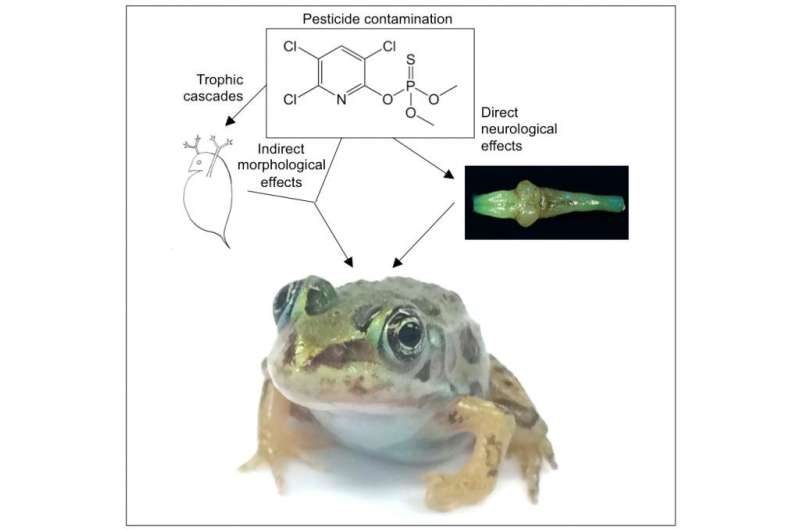Common pesticide inhibits brain development in frogs

New research published in Environmental Toxicology & Chemistry reveals that low doses of a commonly used pesticide potentially harm the Northern Leopard frog by inhibiting their brain development.
The pesticide chlorpyifos, which has been used since 1965 in both agricultural and non-agricultural areas, had clear effects on Northern Leopard tadpoles' neurodevelopment, even in situations where the pesticide did not cause a decline in the amphibians' food source.
"Organophosphorous pesticides contaminate surface waters throughout the U.S. exposing both animals and humans to these chemicals, often at very low, presumably innocuous levels. However, this study demonstrates that exposure to these contaminants, even at these low concentrations, impacts vertebrate neurodevelopment," said lead author Sara McClelland, of Duquesne University, in Pittsburgh.
More information: Sara J. McClelland et al, Insecticide-induced changes in amphibian brains: How sublethal concentrations of chlorpyrifos directly affect neurodevelopment, Environmental Toxicology and Chemistry (2018). DOI: 10.1002/etc.4240
Journal information: Environmental Toxicology and Chemistry
Provided by Wiley















